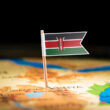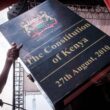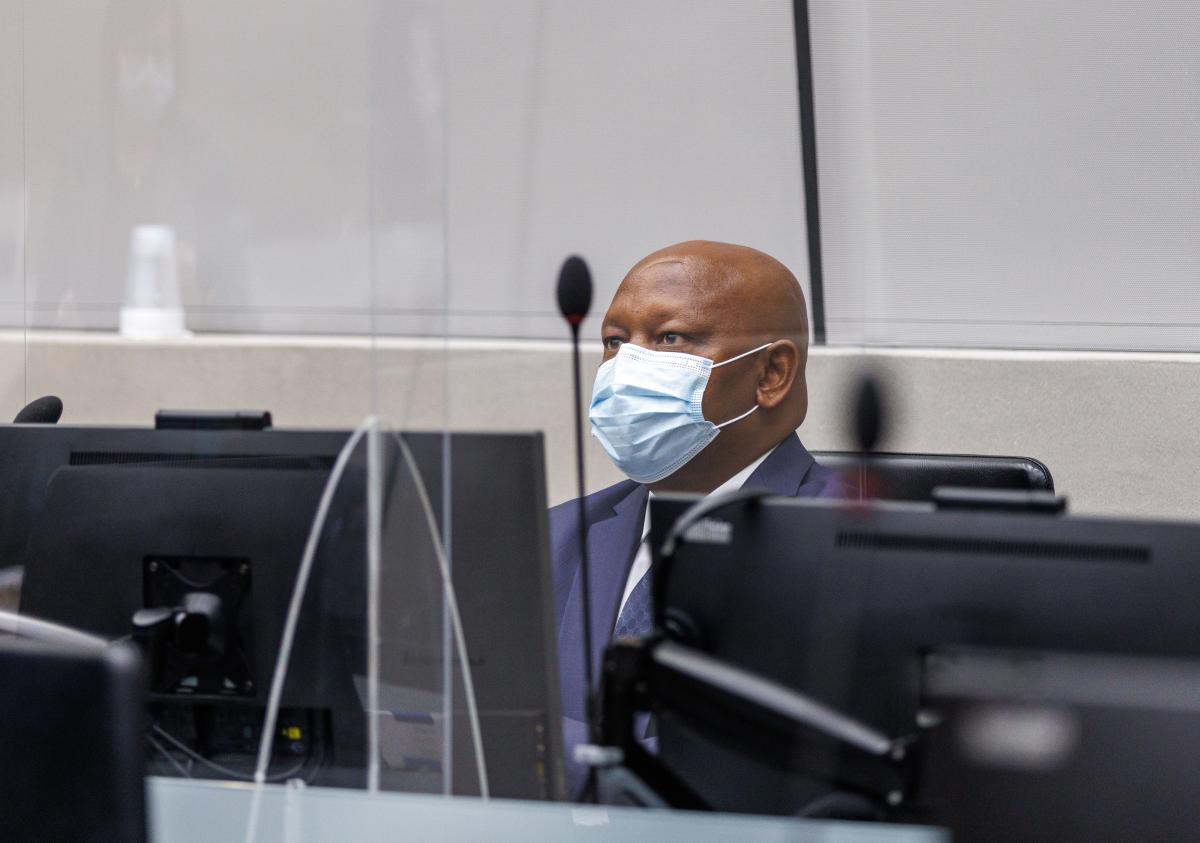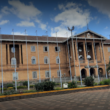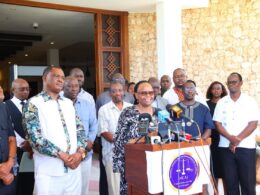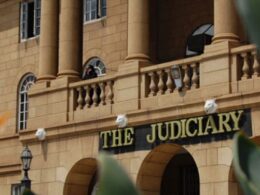By Susan Kendi
The International Criminal Court (ICC) is in contact with the Kenyan national authorities concerning Lawyer Paul Gicheru’s death.
“Confirmation of death is for the national authorities. According to the ICC legal framework, jurisdiction cannot be exercised over a deceased person. Upon receiving confirmation of an accused’s death, the ICC Chamber would then issue a decision to close the case. The time necessary for that purpose depends on the receipt of the confirmation or evidence on his death. The Court is in contact with the national authorities in relation to this matter,” said the ICC Spokesperson and Head of the Public Affairs Unit, Mr. Fadi El Abdallah.
The Kenyan-based lawyer, Paul Gicheru, was found dead at his Karen Residence in Nairobi on Monday evening, 26 September 2022. According to a media report by Standard Media, an Occurrence Book (OB) report number 54 filed at Karen Police Station indicated that Gicheru had foam in his mouth.
Gicheru was on trial at the ICC on allegations of witness interference in the Kenyan case against President William Samoei Ruto and Journalist Joshua Arap Sang. His case had entered its final stages and awaiting judgement following the closing statements by the prosecution and defence on 27 June 2022. The accused had pleaded not guilty to all charges he faced before the Court.
“Trial Chamber III will deliberate on the proceedings and, within a reasonable period, pronounce its decision on conviction or acquittal, pursuant to Article 74 of the Rome Statute. The Chamber bases its decision only on the applicable law and on evidence submitted and discussed before it at the trial,” the court statement read.
During the final arguments, Gicheru’s lawyer, Michael Karnavas, had asked the Court to dismiss all the charges against his client.
“We submit that in this particular case, the prosecution failed to meet its burden of proof. The only appropriate fair and just verdict is a not guilty verdict on all counts,” said Lawyer Michael Karnavas.
“None of these arguments, your Honour, to disturb the conclusion that the prosecution has proved its case beyond reasonable doubt… If the Chamber accepts the prosecution evidence, it must return a guilty verdict on all eight counts of corrupt influence contrary to Article 71C of the Statute,” said Senior Trial Lawyer Anton Steynberg.
Eight prosecution witnesses testified in the case. The prosecution completed its evidence presentation on 29 March 2022. The defence had announced on 25 April 2022 that it would not present any evidence in the case.
Paul Gicheru is released to Kenya with conditions
Gicheru had been in ICC custody but was released to Kenya on 1 February 2021, with specific conditions restricting liberty.
The Pre-trial Chamber A of the ICC imposed 10 conditions in its interim release dated 1 February 2021, one of which stated that Gicheru, on his own or through his lawyer, may not speak to journalists or make any public statements or social media posts on his case.
Judge Reine Adélaïde Sophie Alapini-Gansou held Gicheru’s voluntary surrender in his favour and took into account the fact that the prosecutor did not oppose his request for interim release.
“In the view of the chamber, Mr. Gicheru’s voluntary surrender demonstrates his concrete willingness to subject himself to the jurisdiction of the court in relation to the allegations against him,” said Judge Alapini-Gansou.
The Court also required Gicheru to provide financial security of one million Kenyan shillings [$10,000] to the ICC Registrar in the form of cash or bank order. He was to give copies of his travel and identity documents and notify the Court of any international travel he intended to make seven days in advance. He was to surrender to the Court and appear before it whenever and wherever ordered.
The lawyer was neither to interfere with the investigation nor contact prosecution witnesses or victims in the case except through his lawyer and under strict protocols, which would involve a separate court decision. Additionally, Gicheru was required to report once a week to the ICC’s Registrar and provide his mobile and telephone numbers, which shall remain active with airtime, so that he is reachable at any time. The lawyer shall reside in a specific location in Kenya for the duration of the proceedings.
If Gicheru failed to comply with any of these conditions, the Court could revoke his financial security and issue a fresh arrest warrant, either at the request of the ICC Prosecutor or on its own. The ICC had also invited the government of The Netherlands to give its observations on the possibility of Gicheru temporarily residing in the country for the proceedings before 26 February 2021.
His Surrender to the Court
Lawyer Gicheru surrendered to the ICC on 3 November 2020 pursuant to an arrest warrant issued under seal on 10 March 2015 and unsealed on 10 September 2015. His surrender came five years after the arrest warrant.
During his initial appearance, Gicheru denied that he bribed or attempted to bribe six International Criminal Court (ICC) witnesses. He also confirmed to the Court that he had surrendered voluntarily, without coercion, and at his own expense.
“I wish to confirm to the Court that I surrendered myself to the Dutch authorities on 2 November 2020. This surrender was without coercion; it was voluntary. I did it at my own expense. There was no threat or coercion,” said Gicheru had said during his initial appearance at the ICC.
Gicheru is alleged to have tampered with eight witnesses: P-397; P-516; P-613; P-800; P-495; P-536; P-0341, and P-274 in the case against President William Ruto and Journalist Joshua Sang.
Kenya’s High Court Judgement
On 1 April 2015, the Cabinet Secretary, Ministry of Interior and Coordination of National Government of the Republic of Kenya received a joint request from the International Criminal Court (ICC) for the arrest and surrender of Lawyer Paul Gicheru and his co-suspect Philip Kipkoech Bett.
In a decision delivered by the High Court of Kenya on 16 November 2017, Judge Luka Kimaru dismissed the application filed by the Republic of Kenya as part of its mandate to cooperate with the International Criminal Court, stating that it lacked merit.
“The warrant of arrest issued by this Court (the International Criminal Court) against the Respondents(Paul Gicheru and Philip Kipkoech Bett) is hereby lifted. For the avoidance of doubt, the Applicant(The Republic of Kenya) shall not take any action in furtherance to the request made for the surrender of the respondents unless and until there is compliance with the orders of this Court. It is so ordered,” said Judge Kimaru.
However, despite this decision that challenged the arrest warrant issued by the ICC against Gicheru and Bett, Gicheru has surrendered himself to the Court, raising more questions, despite him clearly stating that his surrender was voluntary, at his own expense, and without threat or coercion.
In conclusion, eight prosecution witnesses testified in Gicheru’s ICC case. The prosecution completed its evidence presentation on 29 March 2022. The defence had announced on 25 April 2022 that it would not present any evidence in the case.
Related Articles:


